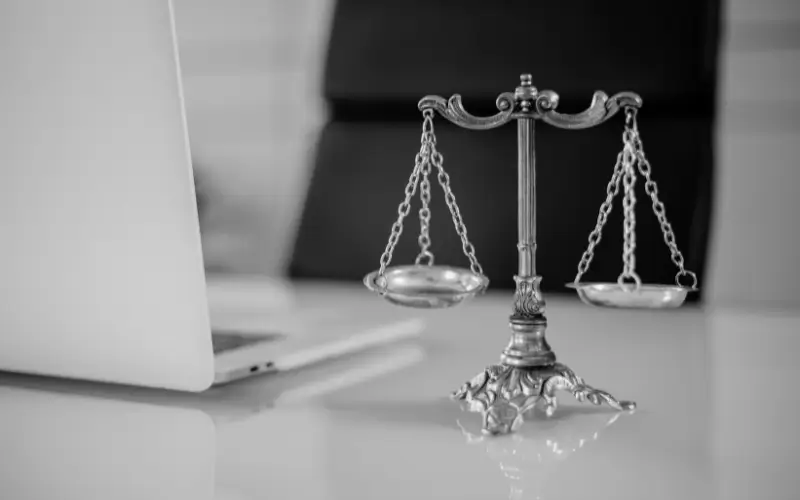Life’s unexpected turns can quickly complicate personal and financial matters. A sudden illness, a family dispute, or the unexpected loss of a loved one can turn private matters into public problems. Assets get frozen. Decisions drag through courts. The people left behind face not just grief, but delays, confusion, and legal costs.
For those who want to avoid that outcome, a trust can offer a clearer path. It creates structure during uncertain times, setting out how assets should be managed or passed on, and by whom. But how much control should you keep, and how much should you give up?
That question often leads to a key decision: choosing between a revocable and irrevocable trusts. Each serves a different purpose. Each comes with trade-offs. Knowing how they compare can help you build a structure that protects your intentions while reducing risk for yourself and the people you care about.
Key Takeaways
- Both revocable and irrevocable trusts can avoid probate and help manage assets in case of incapacity.
- Revocable trusts offer administrative flexibility and are primarily used to avoid probate and prepare for incapacity. However, the settlor retains control, which means the assets remain exposed to taxes and creditor claims.
- Irrevocable trusts involve giving up control to create a legal separation between the settlor and the assets. This structure is often used for estate tax reduction, long-term planning, and asset protection.
- The choice between revocable and irrevocable depends on your priorities, whether you need flexibility now or protection and separation for the future.
- The legal treatment of trusts depends partly on the jurisdiction in which the trust is established.
- For international or cross-border planning, Nevis offers a legal framework designed to support long-term trust management, asset protection, and confidentiality.
What Is A Trust?
A trust is a legal agreement that holds and manages assets on behalf of others. It begins when a person, known as the settlor, transfers ownership of specific assets to a trustee. The trustee is responsible for managing those assets according to the terms set out in the trust deed, for the benefit of one or more named beneficiaries.
Trusts can serve a range of purposes. Some are designed to manage assets during a person’s lifetime, while others focus on passing wealth to the next generation. They may also be used to support minors, protect vulnerable family members, reduce exposure to claims, or organize international holdings.
Every trust must be established under the laws of a particular jurisdiction, and those laws shape how the trust functions. Factors like privacy, creditor protection, and reporting obligations vary widely depending on where the trust is formed. Some jurisdictions, such as Nevis, have become known for offering strong legal frameworks for trusts, especially in cross-border or asset protection contexts.
What Is A Revocable Trust?
A revocable trust, sometimes referred to as a living trust, is a legal relationship that the settlor can modify or terminate at any time during their lifetime. The settlor typically serves as both trustee and beneficiary while alive, which means they retain full control over the trust’s assets and terms. The trust generally becomes irrevocable upon the settlor’s death.
How It Works
- The trust is established through a written agreement that outlines the terms, responsibilities, and intended beneficiaries. This document can be updated as needed during the settlor’s lifetime.
- Ownership of assets is transferred into the name of the trustee, allowing them to be managed under the trust’s terms without requiring court involvement.
- The settlor may continue to manage the assets directly, add or remove property, and make changes to beneficiaries or distribution instructions at any time.
- If the settlor becomes incapacitated or passes away, a named successor trustee takes over to manage or distribute the trust property according to the written terms, without the delays of probate.
Common Uses
- Revocable trusts are frequently used to avoid probate, allowing for a smoother transfer of assets without the need for court supervision.
- Revocable trusts can also provide a clear framework for incapacity, giving a successor trustee the legal authority to manage assets if the settlor is no longer able to do so.
- Revocable trusts help simplify estate administration, especially when there are multiple heirs or assets across jurisdictions.
What Is An Irrevocable Trust?
An irrevocable trust is a legal arrangement that typically cannot be changed or revoked once it has been established, except in limited circumstances such as with beneficiary consent or by court order. When assets are transferred into an irrevocable trust, the settlor gives up ownership and control, placing them under the authority of an independent trustee.
How It Works
- The settlor creates the trust by executing a formal trust deed and transferring ownership of designated assets to the trustee.
- The trustee administers those assets according to the terms of the trust deed and has a legal duty to act in the interests of the beneficiaries.
- Beneficiaries may have rights to income, capital distributions, or other benefits, depending on how the trust is structured.
Common Uses
- An irrevocable trust is often used to reduce the size of a taxable estate, which can help limit future estate tax exposure.
- Irrevocable trusts may be used to shield assets from future creditors or legal claims, depending on how and where the trust is established.
- Families use irrevocable trusts to provide long-term support, including for children, dependents with special needs, or charitable causes.
- In more complex planning, irrevocable trusts can be part of multi-generational wealth transfers or international holding structures.
Key Similarities Between Revocable And Irrevocable Trusts
Although revocable and irrevocable trusts serve different purposes and operate under different rules, they share several core characteristics that make them valuable tools for long-term planning.
Defined Roles
Both revocable and irrevocable trusts follow the same basic framework, involving three core parties: the settlor, the trustee, and the beneficiaries.
- The settlor is the person who creates the trust and transfers ownership of assets into it. The term “grantor” is commonly used as an alternative, depending on the legal system or drafting convention.
- The trustee is the individual or entity appointed to manage the trust’s assets in accordance with the terms of the trust deed. This role includes fiduciary duties such as asset management, recordkeeping, and acting in the best interests of the beneficiaries.
- The beneficiaries are those entitled to benefit from the trust, either through distributions of income, capital, or other benefits as defined in the trust’s terms.
In some trusts, particularly those used for international or long-term arrangements, a protector may also be appointed. The protector’s role is to oversee certain trustee decisions and may include powers such as replacing the trustee or approving key actions outlined in the trust deed. This feature is often included in trusts formed in offshore jurisdictions like Nevis, where the legal framework allows for strong oversight mechanisms without compromising the trust’s autonomy.
Probate Avoidance
One of the most common reasons for using a trust is to avoid probate. Probate is the legal process through which a deceased person’s estate is administered and distributed under court supervision. It can be time-consuming, costly, and subject to public disclosure, especially if there are disputes, complex assets, or property in multiple jurisdictions.
When assets are transferred into a trust during the settlor’s lifetime, those assets are no longer legally owned by the individual at the time of death. Instead, they are held and managed by the trustee, who distributes them directly to the named beneficiaries according to the trust’s terms. This allows the assets to pass outside of the probate process entirely.
Avoiding probate can reduce administrative delays, minimize legal and court fees, and preserve privacy for the individuals involved. It also helps prevent potential disputes, since the trust terms are already established and managed under a separate legal framework. This is particularly useful in cross-border planning or where multiple heirs are involved, as it removes the need to navigate probate procedures in each jurisdiction where assets are located.
Greater Privacy
Trusts are often favored for the level of privacy they provide. Unlike a will, which becomes part of the public record once it is submitted to probate, a trust generally operates outside of court supervision. This means that the terms of the trust, the identity of the beneficiaries, and the nature of the assets involved typically remain confidential.
This privacy can be important for a number of reasons. It helps protect sensitive financial information from public view, reduces the risk of unwanted attention or interference, and preserves discretion for families who prefer to handle their affairs quietly. In high-value or complex estates, keeping the details of asset distribution private can also reduce the likelihood of conflict among heirs or outside parties.
Support During Incapacity
Trusts can provide a practical solution for managing assets if the settlor becomes incapacitated. By naming a successor trustee in advance, the trust allows for a smooth transfer of responsibility without requiring court approval or the appointment of a guardian or conservator.
This built-in continuity helps avoid delays, protects the settlor’s financial affairs from disruption, and ensures that bills, investments, and obligations continue to be handled according to the trust’s terms. It also reduces the emotional and administrative burden on family members who might otherwise be left without clear authority during a difficult time.
Both revocable and irrevocable trusts can include provisions for incapacity, providing continuity and reducing the burden on family members during uncertain times.
Key Differences Between Revocable And Irrevocable Trusts
While revocable and irrevocable trusts share several foundational features, the differences between them are significant and often determine which is better suited to a particular purpose.
Control
Control is one of the most significant distinctions between a revocable and irrevocable trusts.
In a revocable trust, the settlor retains full control for as long as they are alive and capable. This includes the ability to manage or withdraw trust assets, amend the trust terms, change beneficiaries, or revoke the trust entirely. The settlor often serves as the initial trustee, maintaining day-to-day authority over decisions involving the trust’s administration and investments.
An irrevocable trust, by contrast, involves a transfer of control. Once the trust is settled and the assets are transferred, the settlor no longer has the legal authority to direct how those assets are used or managed. Control shifts to the trustee, who must act strictly according to the trust deed and in the interest of the beneficiaries. Any changes to the trust’s terms typically require the consent of all beneficiaries or court approval, depending on the jurisdiction and the language of the deed.
This loss of control in an irrevocable trust is what makes it effective for certain goals, particularly when legal separation of the assets is required for tax or asset protection purposes.
Flexibility
Flexibility refers to how easily the terms of a trust can be changed once it has been created.
A revocable trust remains open to future adjustments. The settlor can revise the trust deed to reflect changing circumstances, such as updating distribution instructions, replacing trustees, or responding to shifts in family needs or financial goals. This ability to adapt over time makes revocable trusts especially practical for individuals whose plans may evolve.
An irrevocable trust, by contrast, is largely fixed once it is established. The terms of the trust, including its beneficiaries and instructions, are typically locked in and cannot be changed unilaterally. In most cases, any modifications require the written consent of all beneficiaries or approval from a court. Some jurisdictions may allow limited changes under specific provisions in the trust deed, such as powers reserved to a protector or trustee, but these are exceptions rather than the rule.
The difference in flexibility reflects the legal purpose of each structure. Revocable trusts prioritize ease of management and access, while irrevocable trusts prioritize long-term certainty and separation from the settlor.
Asset Protection
Asset protection refers to how effectively a trust can shield its contents from claims by creditors, lawsuits, or other third-party risks.
A revocable trust provides no meaningful protection in this regard. The settlor retains legal ownership and control over the assets, which keeps them fully exposed to personal liabilities. Creditors can still access the assets as part of the settlor’s estate during their lifetime.
An irrevocable trust may offer protection from future creditors if the trust is properly structured and the settlor fully relinquishes control and beneficial interest. Once the assets are no longer legally tied to the settlor, they become more difficult to claim in legal proceedings. However, protections are not automatic. Timing, documentation, and the original intent behind the trust all play a role in determining whether those protections hold.
Jurisdiction also plays an important role in how effective this protection is. Some jurisdictions, such as Nevis, have enacted legislation that limits the ability of foreign creditors to challenge a trust or enforce judgments against its assets. These laws often include short limitation periods, strict evidentiary standards, and a general refusal to recognize certain types of foreign court orders. When used correctly, this legal environment can make it significantly harder for future creditors to reach the trust property.
Estate Inclusion
Estate inclusion refers to whether the assets held in a trust are considered part of the settlor’s estate for tax purposes at the time of their death.
A revocable trust does not remove assets from the settlor’s estate. Since the settlor maintains control and can revoke or alter the trust at any time, tax authorities continue to treat those assets as part of the settlor’s personal holdings. As a result, the value of the trust is included in the estate and may be subject to inheritance or estate tax, depending on the applicable laws.
An irrevocable trust, on the other hand, may allow assets to be excluded from the settlor’s estate. Once the settlor gives up control and no longer retains a beneficial interest, the trust assets are treated as legally separate. This separation can reduce the taxable value of the estate and may form part of a larger strategy to minimize tax exposure.
The distinction reflects a broader legal principle: tax authorities look at control and benefit, not just formal ownership. Revocable trusts are useful for managing and distributing assets but do not change the estate’s taxable value. Irrevocable trusts can achieve both administrative and tax planning goals, provided the settlor is willing to give up control.
Tax Implications
Tax implications refer to who is responsible for reporting income generated by the trust and how that income is treated under tax law.
A revocable trust is the most straightforward from a tax perspective. Any income earned by the trust is treated as income of the settlor, who remains fully responsible for reporting and paying tax on it. Since there is no legal separation for tax purposes, the trust does not file a separate return and is not recognized as a distinct taxpayer.
An irrevocable trust may be treated differently. If the settlor has given up all control and no longer benefits from the trust, the trust may be recognized as a separate taxable entity. In that case, the trustee is responsible for filing tax returns, and the trust may pay tax on income it retains. Income distributed from the trust may be reportable and taxable to the beneficiaries, depending on local tax laws and how the trust is structured.
The key distinction here lies in legal separation. Revocable trusts remain tied to the settlor for all tax purposes. Irrevocable trusts, if properly structured, may create a new tax identity and open the door to more advanced planning strategies.
Common Use Cases
Common use cases refer to the practical goals each type of trust is typically used to achieve.
A revocable trust is most often used for administrative ease and personal continuity. It provides a straightforward way to manage assets during the settlor’s lifetime, especially in the event of incapacity. It also helps streamline estate administration by allowing assets to pass directly to beneficiaries without going through probate. These features make revocable trusts especially useful in domestic planning where privacy, efficiency, and flexibility are the main concerns.
An irrevocable trust is generally used when the goal is to remove assets from the settlor’s estate and create long-term legal separation. This structure supports planning strategies focused on tax reduction, asset protection, and multigenerational wealth transfers. Irrevocable trusts are also used to support dependents with special needs, establish charitable giving vehicles, or hold assets in cross-border structures where separation from personal ownership is important.
Comparison Summary
| Feature | Revocable Trust | Irrevocable Trust |
| Control | Settlor retains full control | Control is transferred to the trustee once established |
| Flexibility | Can be amended or revoked at any time | Changes require beneficiary consent or court approval |
| Asset Protection | Assets remain exposed to creditors | May protect assets from future creditors, depending on jurisdiction |
| Estate Inclusion | Included in the settlor’s taxable estate | May be excluded if settlor relinquishes all interest |
| Tax Implications | Income is taxed to the settlor | May be taxed as a separate entity, depending on structure and location |
| Duration | Typically ends at death or shortly thereafter | May continue long-term, subject to jurisdiction and trust terms |
| Common Use Cases | Incapacity planning, probate avoidance | Tax mitigation, asset protection, long-term family or charitable planning |
Which Type Of Trust May Be Right For You?
Choosing between revocable and irrevocable trusts depends on your personal goals, risk tolerance, and financial circumstances.
When A Revocable Trust May Be More Appropriate
Revocable trusts are often used when the primary goal is simplicity, flexibility, and continuity during life. For example:
- You want to retain control over your assets and make changes to your plan as your circumstances evolve.
- You’re concerned about managing assets during a period of incapacity and want someone you trust to step in without court involvement.
- You’re aiming to avoid probate and keep your affairs private and orderly for your heirs.
You’re not focused on asset protection or estate tax planning but want a clear, practical framework in place. - Your estate is relatively straightforward, and your priority is ease of administration, not legal separation or risk mitigation.
When An Irrevocable Trust May Be More Appropriate
Irrevocable trusts are more commonly used for strategic planning where legal separation, tax outcomes, or long-term protection are the main priorities. For example:
- You want to reduce the taxable value of your estate by transferring assets out of your personal ownership.
- You’re concerned about future creditors, legal liability, or asset exposure and want protection built into the structure.
- You intend to pass assets to future generations in a structured, long-term way that can’t be altered unilaterally.
- You have charitable goals and want to establish a vehicle that holds and distributes assets according to defined terms.
- You’re managing international wealth and need to separate your personal estate from certain high-risk jurisdictions or tax systems.
- You’re willing to give up control in exchange for legal certainty and risk insulation over time.
When Jurisdiction Matters
The effectiveness of a trust depends not only on the type of structure you choose but also on where the trust is established. Jurisdiction shapes how trusts are treated under law, including the level of asset protection available, the rules for creditor access, and the confidentiality of trust records.
For individuals with international assets or cross-border families, these considerations take on greater importance. A well-chosen jurisdiction can provide legal clarity, reduce exposure to unwanted claims, and help avoid conflicts across legal systems.
Nevis trust is one example of a jurisdiction known for supporting international trust planning. The legislation emphasizes privacy, limits the ability of foreign creditors to challenge a trust, and supports long-term asset protection strategies. These features make it a compelling option for those seeking legal separation from their personal estate or managing wealth across multiple regions.
Explore Options With Trust Nevis
If you’re exploring trust options and want to understand how Nevis International Trusts may support your long-term goals, we’re available to assist. Contact our team at Trust Nevis to explore structure options, review jurisdictional benefits, or discuss how to build a plan suited to your needs.
Frequently Asked Questions
Why Would Someone Create A Trust?
A trust is created to legally separate the control and ownership of assets from the individual who owns them. People use trusts to manage wealth, plan for incapacity, avoid probate, protect assets from future creditors, reduce tax exposure, and ensure that beneficiaries receive assets under clearly defined terms. Trusts can also help maintain privacy and simplify succession, especially when multiple heirs or jurisdictions are involved.
What Are The Different Types Of Trusts?
The two main categories are revocable and irrevocable trusts. A revocable trust allows the creator (settlor or grantor) to amend or cancel the trust during their lifetime. An irrevocable trust, once established, generally cannot be changed without consent. Other types of trusts include discretionary trusts, charitable trusts, special needs trusts, spendthrift trusts, and international or offshore trusts- each designed for specific planning goals or legal environments.
What Is The Main Difference Between A Revocable Trust And An Irrevocable Trust?
The key difference between a revocable trust and an irrevocable trust lies in control. A revocable trust allows the settlor to retain full authority over the trust assets and make changes at any time. An irrevocable trust, by contrast, requires the settlor to give up control and beneficial interest, creating legal separation between the assets and the individual who established the trust.
What Is The Best Type Of Trust?
There is no single “best” type of trust. The appropriate structure depends on the individual’s goals, risk profile, tax exposure, and asset profile. A revocable trust is best suited for those seeking flexibility and simple estate administration. An irrevocable trust is more appropriate for long-term planning, asset protection, and estate tax reduction.
Does A Revocable Trust Have An Advantage Over An Irrevocable Trust?
A revocable trust offers administrative ease, privacy, and the ability to avoid probate while allowing the settlor to retain control over the assets. This flexibility is its main advantage. However, revocable trusts do not offer protection from creditors or any estate tax benefit, which limits their use in more complex planning.
Why Would Someone Choose An Irrevocable Trust Over A Revocable One?
An irrevocable trust provides legal and tax separation between the settlor and the assets. This structure is often chosen for asset protection, estate tax planning, or managing distributions across generations. Individuals who are comfortable giving up control in exchange for long-term protection or tax efficiency often opt for irrevocable trusts.
How Do I Choose Between A Revocable Trust And An Irrevocable Trust For International Planning?
The decision depends on the purpose of the trust. A revocable trust is appropriate for straightforward planning and domestic estate management. For international planning – especially when dealing with cross-border assets, creditor risk, or tax exposure – an irrevocable trust is often more suitable. Jurisdictions like Nevis offer legal frameworks that support international structures with enhanced protection and confidentiality.
What Are The Potential Drawbacks Of Using An Irrevocable Trust?
The main drawback of an irrevocable trust is the loss of control. Once assets are transferred into the trust, the settlor cannot unilaterally change the terms or retrieve the assets. This lack of flexibility must be carefully considered before proceeding, especially for individuals whose financial needs or circumstances may change.
Can I Be The Trustee Of My Own Revocable Trust?
Yes. In most revocable trust arrangements, the settlor often serves as the initial trustee, maintaining control over the assets and trust management during their lifetime. A successor trustee is typically named to take over if the settlor becomes incapacitated or passes away.
Can I Change The Terms Of My Revocable Trust At Any Time?
Yes. A revocable trust can be amended, updated, or revoked entirely by the settlor at any point during their lifetime, provided they are mentally competent. This flexibility is one of the primary reasons revocable trusts are used in personal estate planning.
How Can An Irrevocable Trust Be Modified?
An irrevocable trust can only be modified under limited circumstances. Any changes typically require the written consent of all beneficiaries or approval by a court. Some irrevocable trusts include specific provisions that allow limited modifications, such as powers granted to a protector or trustee under the trust deed. Local trust law will determine the options available.
Can You Withdraw Money From An Irrevocable Trust?
Withdrawals from an irrevocable trust depend on the terms set out in the trust deed. The trustee controls distributions, and funds may only be accessed by beneficiaries according to the rules specified in the trust. The settlor cannot withdraw funds unless they are also a beneficiary and the trust terms allow for it.
What Is The Downside Of An Irrevocable Trust?
The primary downside is the loss of flexibility. Once an irrevocable trust is established, the settlor cannot alter the terms, reclaim assets, or change beneficiaries without consent. This can pose challenges if personal or financial circumstances shift significantly after the trust is created.
Can A Trust Be Used To Reduce Or Avoid Taxes Legally?
Yes. A trust can support legal tax planning, especially when structured as an irrevocable trust that separates ownership from the settlor. Depending on jurisdiction, trusts may be used to reduce estate taxes, defer capital gains, or shift income to beneficiaries in lower tax brackets. Any tax benefits depend on proper structuring and compliance with applicable laws.
Can A Trust Help Avoid Capital Gains Taxes On Appreciated Assets?
In some cases, a trust can help defer or reduce capital gains taxes. For example, certain irrevocable trusts may allow for the strategic sale or transfer of appreciated assets in a way that minimizes tax liability. The effectiveness of this approach depends on the type of trust, local tax rules, and whether the trust is considered a separate taxpayer.
Does A Revocable Trust Protect My Assets From Creditors Or Lawsuits?
No. A revocable trust does not provide asset protection. Since the settlor retains full control over the trust assets, those assets remain legally connected to the settlor and can be reached by creditors or legal judgments.
What Types Of Assets Can I Place Into A Trust?
A wide range of assets can be placed into a trust, including real estate, bank accounts, investment portfolios, business interests, intellectual property, and personal belongings. Some jurisdictions may have restrictions on specific asset classes, and due diligence should be performed before transferring complex or illiquid holdings.
Who Legally Owns The Property In A Revocable Living Trust?
In a revocable living trust, legal title to the property is held by the trustee. However, the settlor retains full control over the assets as long as they are alive and competent. The trustee holds the property “in trust” for the benefit of the beneficiaries, according to the terms of the trust deed.
Can I Set Up A Trust If I Have Beneficiaries In Different Countries?
Yes. A trust is often the preferred tool for managing cross-border inheritance and succession planning. When beneficiaries are located in different jurisdictions, a trust can simplify administration and reduce legal conflicts. International trusts are particularly useful in avoiding forced heirship laws and maintaining continuity across borders.
What Happens To A Revocable Trust After The Grantor Dies?
After the settlor’s death, the revocable trust becomes irrevocable. The successor trustee is responsible for managing and distributing the trust assets as outlined in the trust deed. Probate is usually avoided, and the administration can proceed privately without court involvement.














